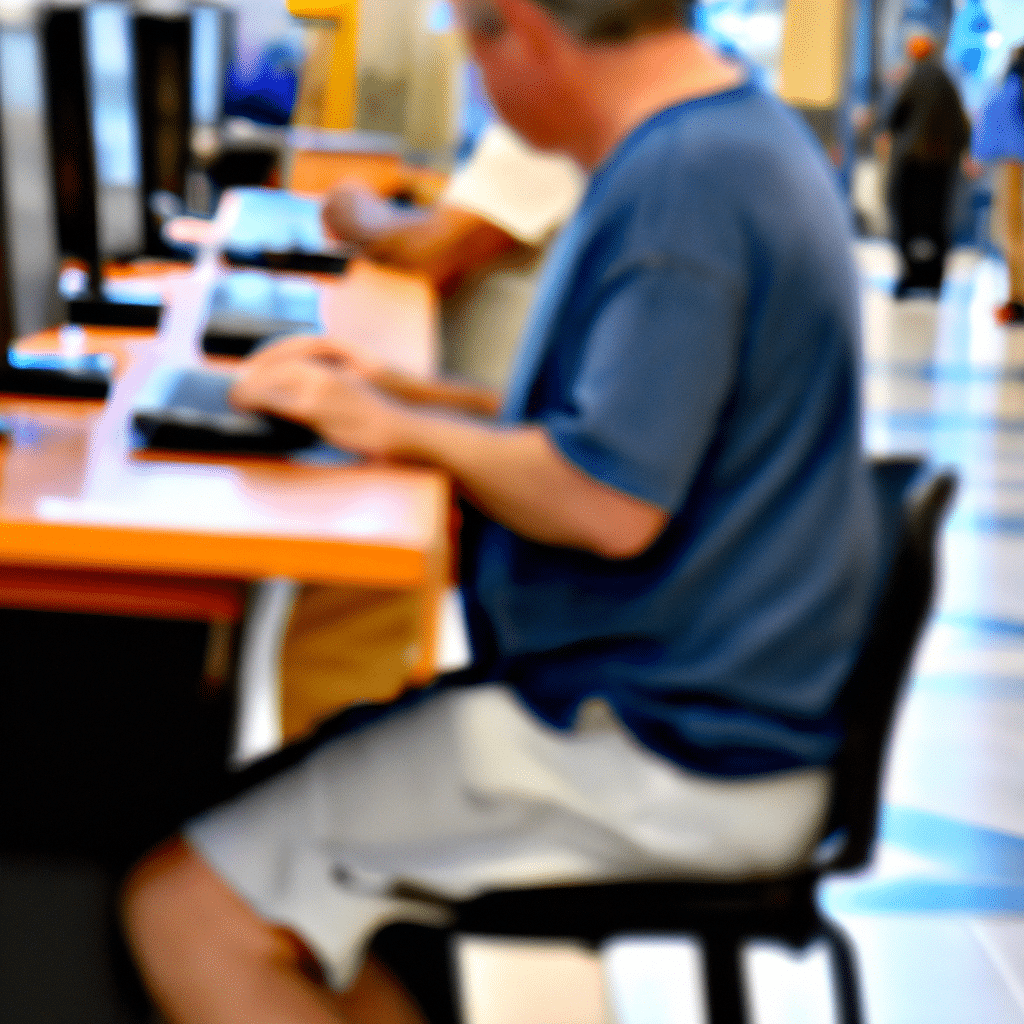Public keyboards are a common feature in many public spaces, including libraries, cafes, airports, and hotels. They are convenient for people who need to use a computer or access the internet on the go. However, using public keyboards can pose a significant risk to your privacy and security. In this article, we will explore the risks of using public keyboards and provide practical tips on how to stay safe.

Risks of Using Public Keyboards
Public keyboards are often used by multiple people every day, which means that they are more likely to be contaminated with harmful bacteria and viruses. Additionally, public keyboards are often poorly maintained, which can lead to technical problems that compromise your data security. Here are some of the risks associated with using public keyboards:
1. Malware Infections
Public keyboards can be infected with malware, which is a type of software that is designed to damage or disrupt computer systems. Malware can steal your personal information, such as login credentials, credit card numbers, and other sensitive data. Malware can also cause your computer to crash or slow down significantly.
2. Keyloggers
Keyloggers are a type of malware that records every keystroke you make on a keyboard. This means that keyloggers can capture your passwords, credit card numbers, and other sensitive information. Keyloggers can be installed on public keyboards by hackers who want to steal your personal information.
3. Shoulder Surfing
Shoulder surfing is a technique used by hackers to steal your personal information by looking over your shoulder while you are typing. This technique is especially effective in public spaces where people are using public keyboards. Shoulder surfing can lead to identity theft, credit card fraud, and other types of cybercrime.
4. Physical Contamination
Public keyboards are often contaminated with harmful bacteria and viruses, which can make you sick. Bacteria and viruses can survive on surfaces for hours or even days, which means that you could contract an illness by using a contaminated keyboard.
How to Stay Safe While Using Public Keyboards
Despite the risks associated with using public keyboards, there are several practical steps you can take to protect your privacy and security. Here are some tips on how to stay safe while using public keyboards:
1. Avoid Using Public Keyboards for Sensitive Information
Avoid using public keyboards for sensitive information, such as online banking, email, or social media. If you must use a public keyboard for these purposes, make sure to log out of your accounts and clear your browsing history after you are done.
2. Use a Virtual Keyboard
A virtual keyboard is a software-based keyboard that you can use on any computer or device. Virtual keyboards are more secure than physical keyboards because they do not store any information on the computer. You can use a virtual keyboard for sensitive information, such as online banking or shopping.
3. Use a Privacy Screen
A privacy screen is a filter that you can attach to your computer screen to prevent people from seeing your screen from the side. This can help prevent shoulder surfing and protect your privacy.
4. Bring Your Own Keyboard
If you need to use a keyboard in a public space, consider bringing your own keyboard. This can help reduce the risk of contamination and protect your data from malware and keyloggers.
5. Use Antivirus Software
Make sure to use antivirus software on your computer to protect against malware and other types of cyber threats. Antivirus software can detect and remove malware from your computer, as well as block malicious websites and downloads.
Conclusion
Using public keyboards can pose a significant risk to your privacy and security. Public keyboards are often contaminated with harmful bacteria and viruses, and they can be infected with malware and keyloggers. However, by following the tips outlined in this article, you can protect your privacy and security while using public keyboards. Avoid using public keyboards for sensitive information, use a virtual keyboard, bring your own keyboard, use a privacy screen, and use antivirus software. By taking these steps, you can stay safe and secure while using public keyboards.












